To help round off 2024, Dezeen’s editorial team have each picked their favourite design project from the year, including grow-at-home furniture and a device to prevent cancer patients losing their hair.
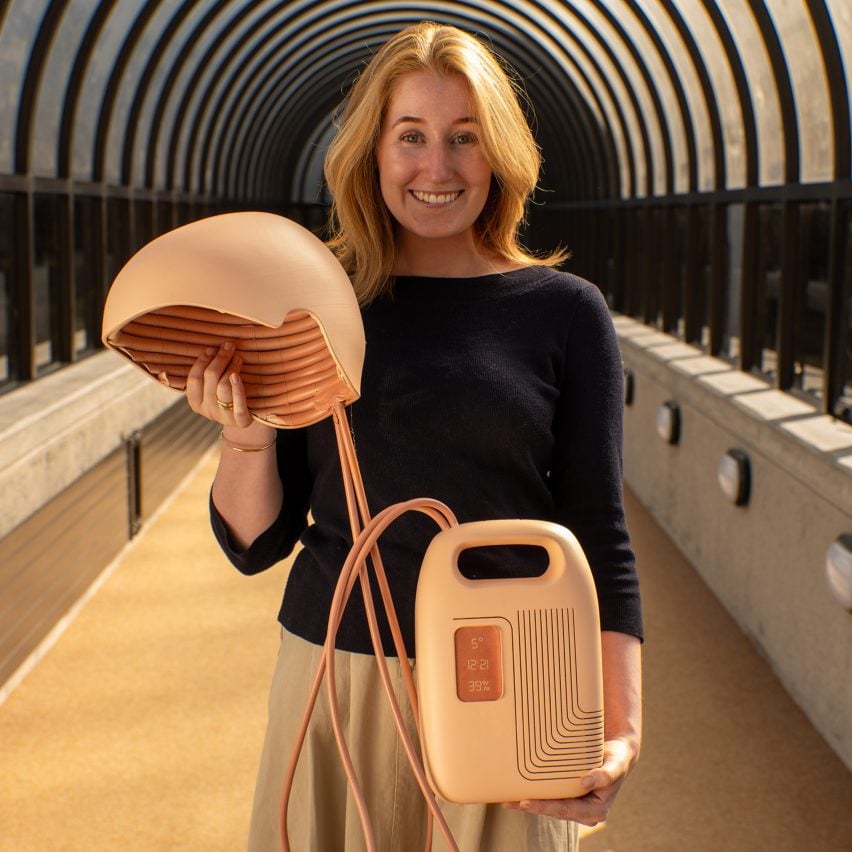
Athena by Olivia Humphreys
chosen by Lizzie Crook, architecture editor
“For me, the most noteworthy design of 2024 is Athena, a prototype for a portable and low-cost scalp-cooling device that aims to prevent hair loss in cancer patients.
“It offers an alternative to traditional cold caps that are uncomfortable, scarcely available and require people to spend additional time in hospital on a chemotherapy infusion day.
“Instead, Athena makes cold-cap therapy accessible anywhere – helping patients take back an element of control and retain a sense of self at an incredibly gruelling time. It tackles a real problem in healthcare that is overlooked yet has the potential to empower many people if solved.”
Find out more about Athena ›
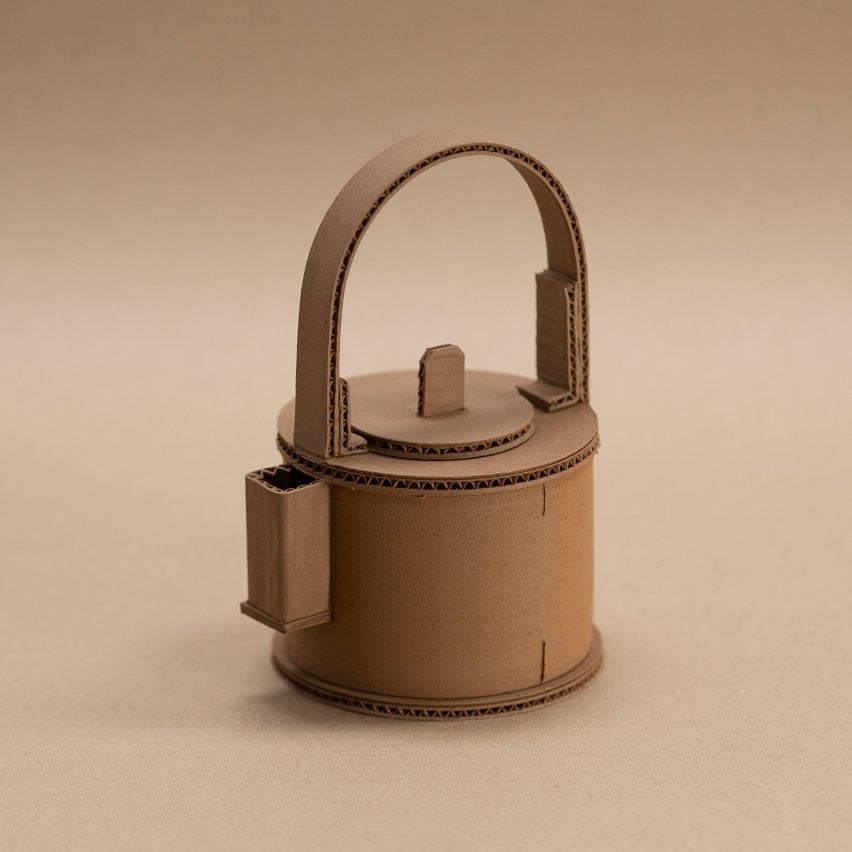
Carton ceramics by Jacques Monneraud
chosen by Cajsa Carlson, deputy editor
“This joyful project was popular with our readers, who were dumbfounded by the realism of designer Jacques Monneraud’s pieces – a collection of ceramics that appear to be made from just cardboard and tape.
“Monneraud’s brown vases, pitches and teapots have an astoundingly realistic look and really do look like they’re made from cardboard. The designer created the striking effect by combining three different stonewares to create an accurate texture and colour. He then added white tape made of glaze for a trompe l’oeuil finished result.”
Find out more about Carton ›
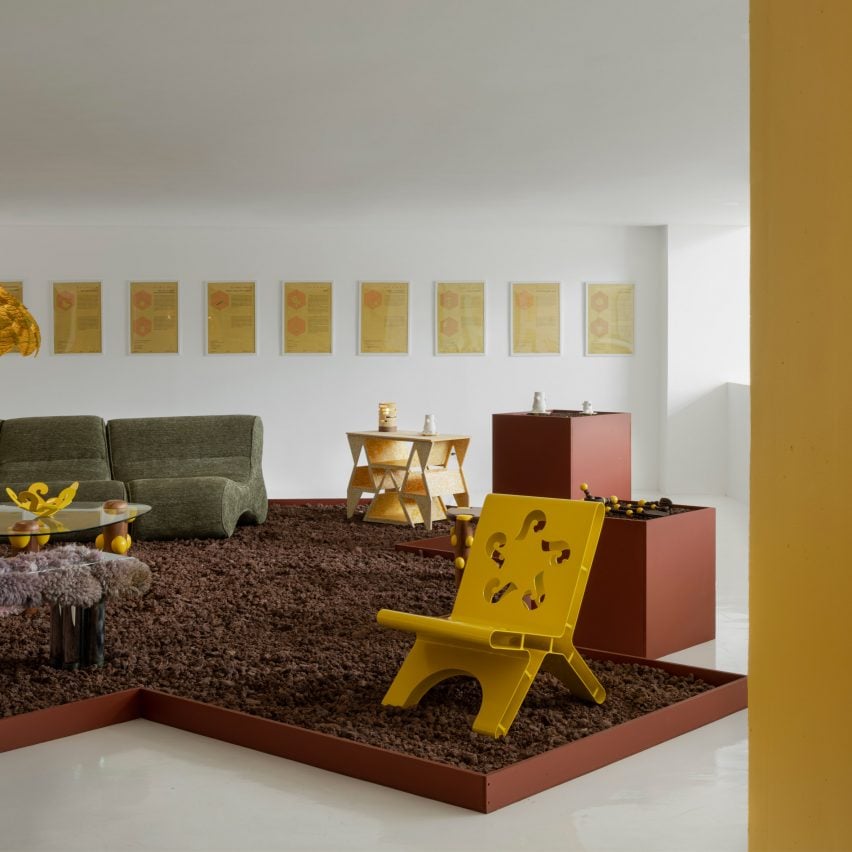
Design Mixtape by Hall Haus
chosen by Ben Dreith, US editor
“Put on during the increasingly dynamic Design Week Mexico, this exhibition saw French studio Hall Haus collaborating with local designers to ‘remix’ its designs instead of shipping the already-made pieces from France.
“The exhibition included a popular Hall Haus chair with a slightly different form closer to the Mexican tabuque chair, with a Neko glyph cut into its back, in collaboration with design studio Neko.”
Find out more about Design Mixtape ›
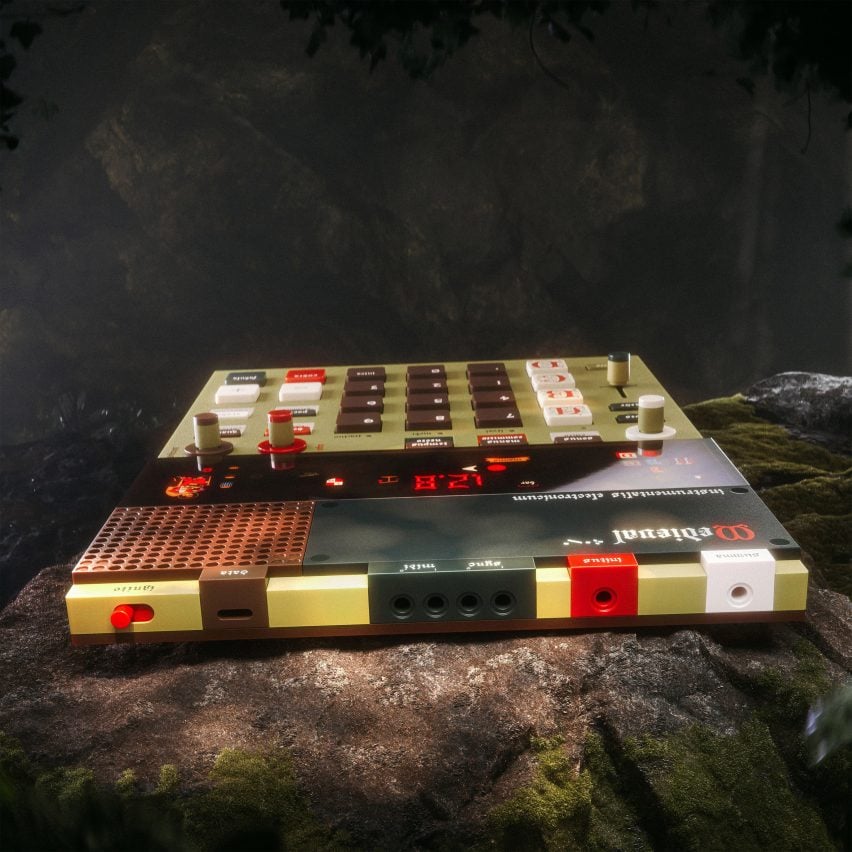
EP-1320 by Teenage Engineering
chosen by Nat Barker, features editor
I’ve admired Teenage Engineering products from afar for quite some time, and with the EP-1320 the Swedish outfit proved that tech companies can indeed show imagination and a sense of humour.
“Conceived as a beat machine inspired by the Middle Ages, it allows users to make tunes using samples of lutes, cackling witches and the hurdy-gurdy. All this could be incredibly naff if it wasn’t so exquisitely put together.
“It’s just such a shame that, as someone with no musical talent whatsoever, I have absolutely no use for it.”
Find out more about the EP-1320 ›
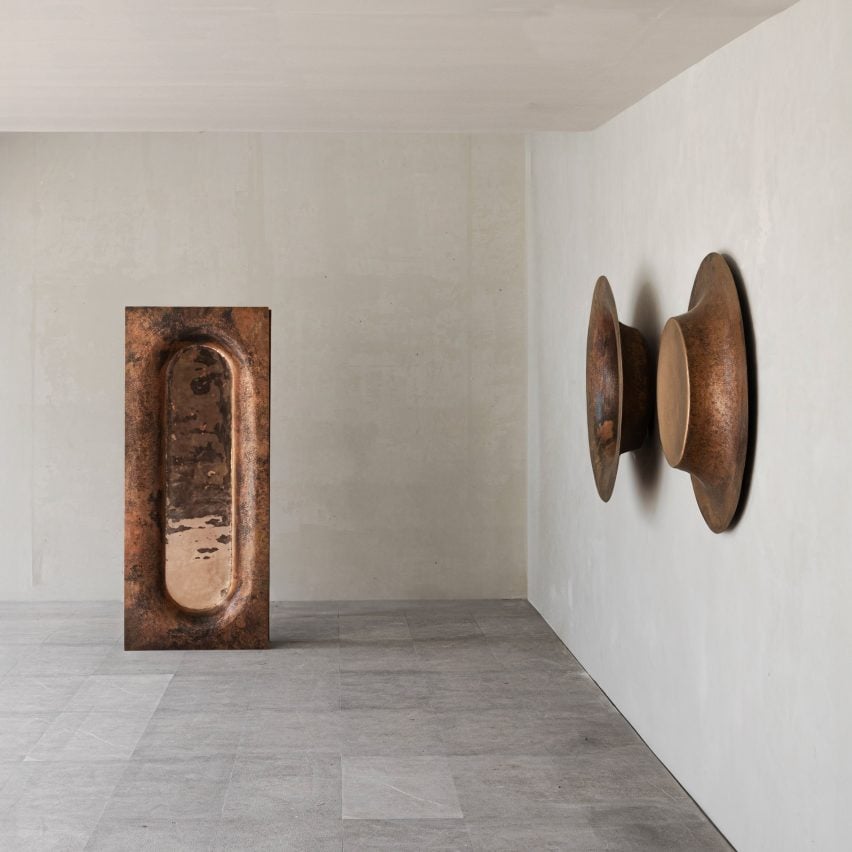
OBJ-08 mirrors by Manu Bañó
chosen by Starr Charles, editorial assistant
“The rich textures and tones that feature in the OBJ-08 mirrors created by designer Manu Bañó are a testament to the craftsmanship involved in their production.
Moulded from single sheets of tarnished copper, the sculptural mirrors showcase the versatility of the red-toned material through their polished centres and hammered surfaces that would add character to any interior.
Find out more about OBJ-08 ›
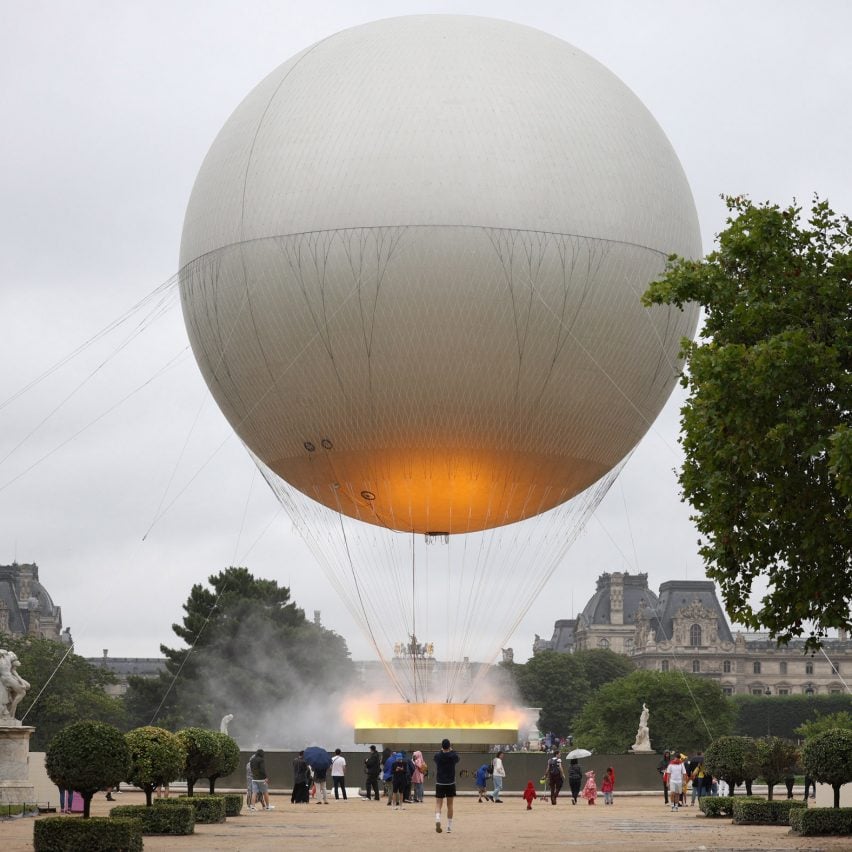
Paris 2024 Olympic cauldron by Mathieu Lehanneur
chosen by Tom Ravenscroft, editor
“With the world’s attention focused on Paris there was no higher-profile commission this year than the Olympic cauldron, and Mathieu Lehanneur rose to the challenge with an uplit orb that floated above the city skyline.
“Following a recent tradition of kinetic, moving Olympic cauldrons, Lehanneur’s ‘flying cauldron’ rose into the sky from the Jardin des Tuileries as the finale of the opening ceremony. Designed as a nod towards France’s history of hot-air ballooning, the cauldron consisted of a seven-metre-wide ring of electric ‘fire’ hung from a 30-metre-tall helium-filled balloon.
“By raising the cauldron 60 metres into the sky, the installation was visible from across the city and Lehanneur hopes it will become a permanent landmark.”
Find out more about the Paris 2024 Olympic cauldron ›
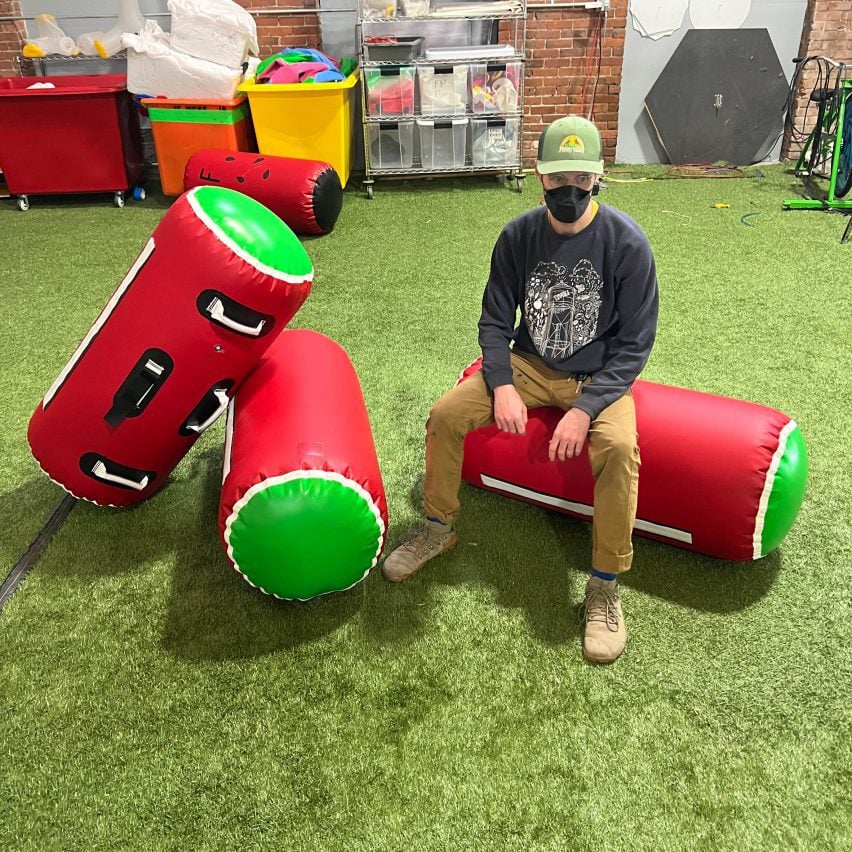
Protest Street Seats by Pneuhaus
chosen by Ellen Eberhardt, US reporter
A timely project, Rhode Island design studio Pneuhaus converted a series of playful, outdoor inflatable benches into self-defence objects for pro-Palestine protesters at universities across the US.
“Uncomplicated yet effective, the project demonstrates how designers and their objects can quickly adapt and contribute to current events while serving to aid a wider community.”
Find out more about this project ›
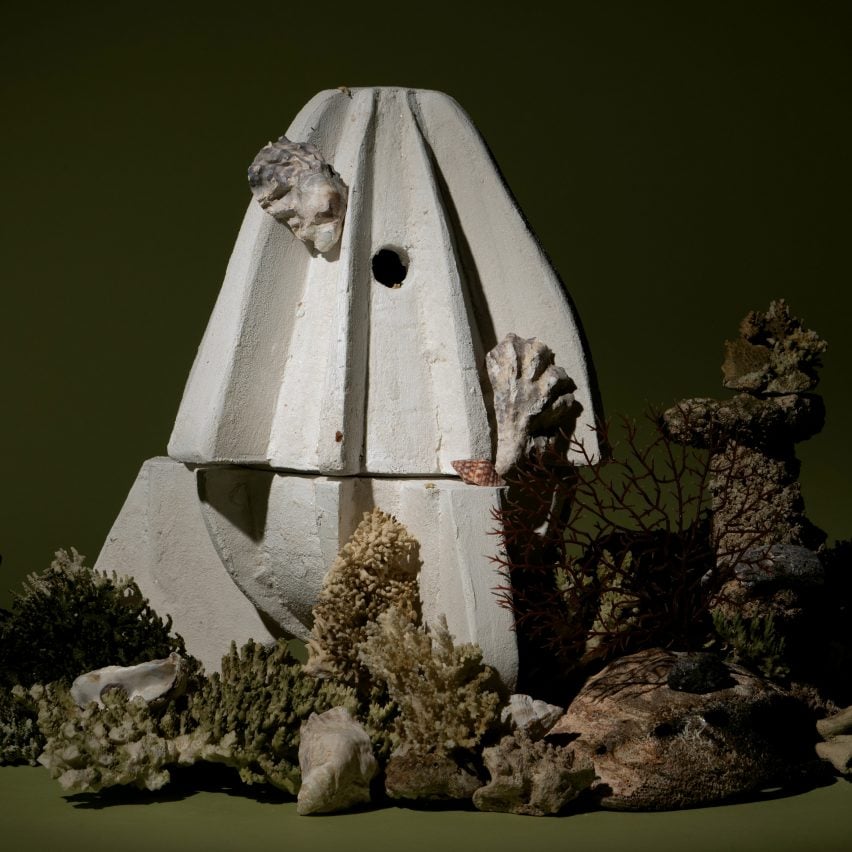
Reef Rocket by Mary Lempres
chosen by Amy Peacock, architecture reporter
Reef restoration is a huge factor in climate action today, both to increase marine biodiversity and to mitigate coastal flooding, but some examples of artificial reefs made from man-made materials have been found to increase pollution, including the use of car tyres in Florida and on the French Riviera.
“Industrial designer Mary Lempres seeks to remedy this with Reef Rockets. Made by combining plant-derived cement with aggregate made from crushed glass and oyster shells, the ridged modules were designed to mimic coastal oyster reefs. I hope to see more nature-inspired solutions in the future!”
Find out more about Reef Rocket ›
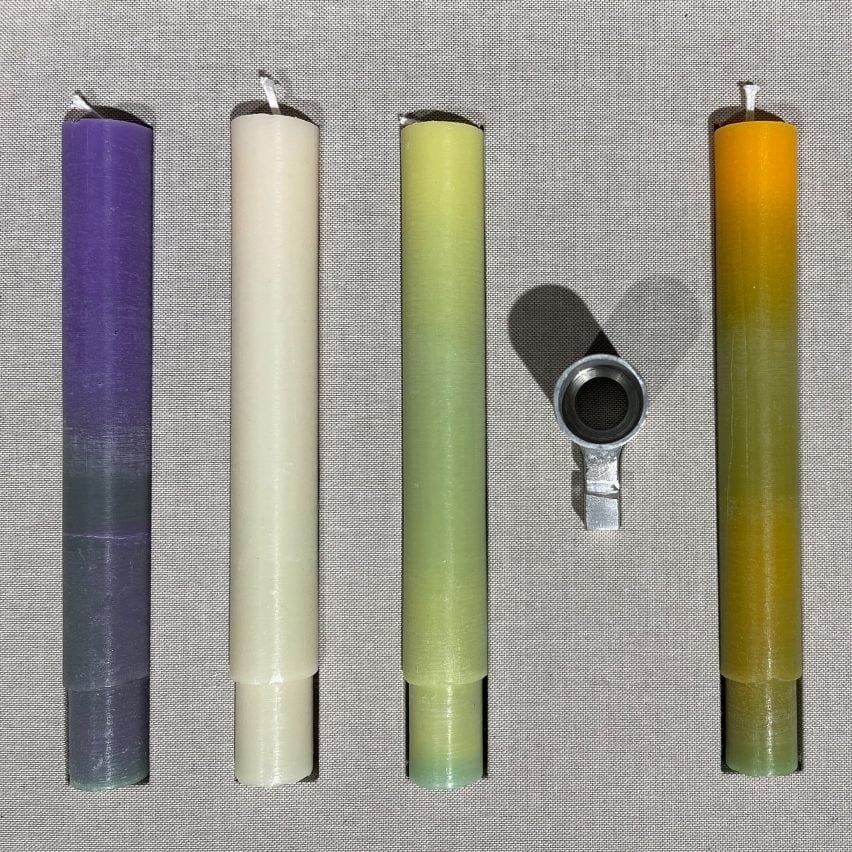
Tear-gas canister candle holders by Majdulin Nasrallah
chosen by Jane Englefield, design and interiors reporter
“Palestinian designer Majdulin Nasrallah painstakingly salvaged tear gas canisters from Israeli-occupied streets in the cities of Bethlehem and Nablus over more than two years and repurposed them as key-shaped candle holders.
“The designer transformed inherently violent objects into a subtle but universal symbol of Palestinian resistance, undeterred by the many obstacles she faced in the process. I am inspired by her resourcefulness and collaboration.”
Find out more about this project ›
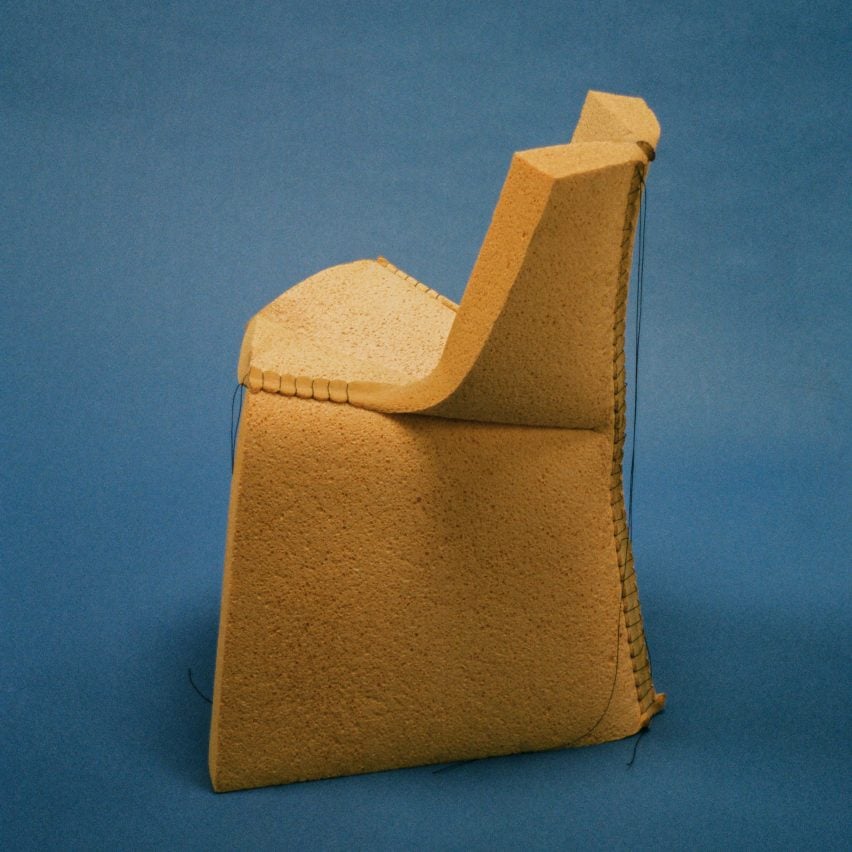
Under Pressure Solutions by Christophe Guberan, Anthony Guex and Camille Blin
chosen by Jennifer Hahn, design and environment editor
“Sustainable furniture gets a bad rap for not being the most exciting. But this grow-at-home chair blew me away when I saw it at Milan design week this year.
“Made using cellulose sponge, the design is flat-packed and effectively self-assembles when soaked in water, growing up to 10 times in size to take its final form.
“To me, it proves that the very thing that makes a product better for the planet can also make it more fun.”
Find out more about Under Pressure Solutions ›
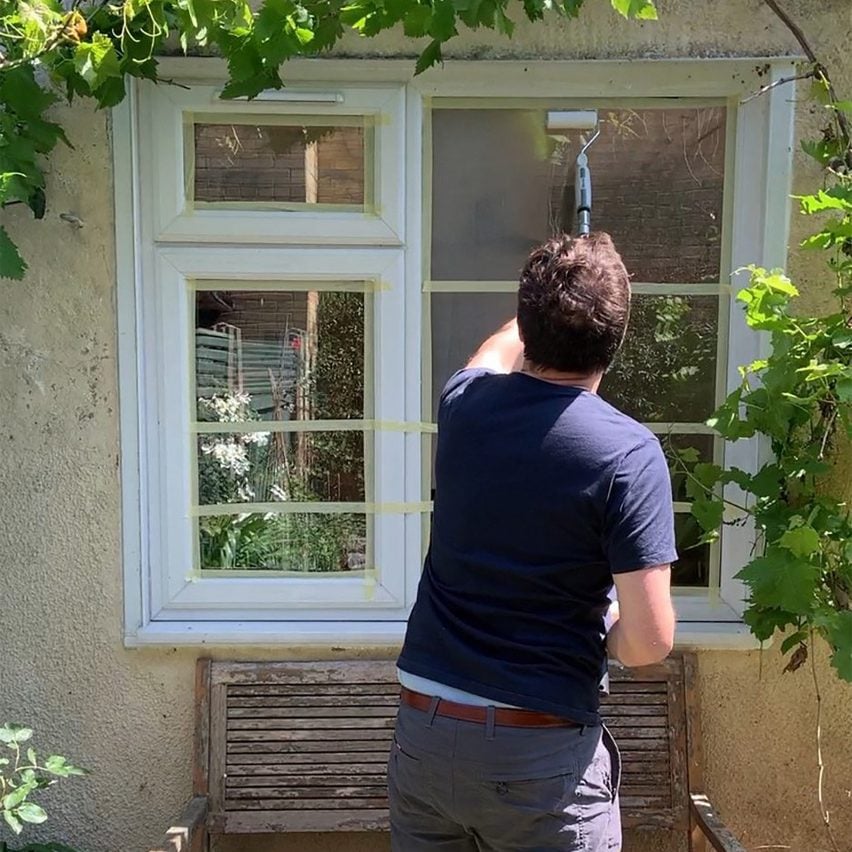
Yoghurt window coating by Tom Greenhill
chosen by Christina Yao, China editor
“The yoghurt window coating proposed by British engineer Tom Greenhill as an emergency heatwave solution might sound completely bonkers at first, but you can’t help giving it a chance and considering its low cost and accessibility, what’s the harm?
“It’s good to see someone is trying to come up with a simple solution to keep their homes cool in the summer, rather than going straight for an architectural application which is not always affordable to everyone.”
Find out more about this project ›

